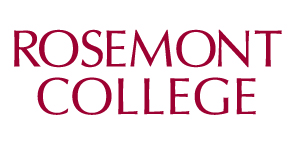Degree Requirements
Rosemont's Bachelor of Science in Integrated Studies is best suited for students who have at least 60 transfer credits. Up to 90 credits can be accepted toward your bachelor’s degree.
We welcome your transfer credits from college classes at multiple schools, including those earned on joint services transcripts, CEUs from work-related training, or credits for assessment of prior learning. Your Rosemont advisor will help you apply your credits to your Rosemont degree and forge a path forward that incorporates all that you have already done.
Integrated Studies majors will take the below required core classes that are designed to broaden your global perspective and ability to think critically, all while giving you the tools needed to effect meaningful change in your community and beyond.
This course will introduce learners to selected current issues affecting the environment from a scientific and social context. Topics are with a focus on implications for the global community. Key environmental issues are highlighted in the course, and students are encouraged to research additional topics in more detail through their independent research journals. Topics covered in the course include historical and ethical perspectives of the environment, the concept of sustainability, biodiversity, renewable and nonrenewable environmental resources, environmental health, and climate change. Each topic is discussed from a local/regional perspective as well as with suggestions towards global impacts and change. (3 credits)
The course will examine cultural styles of leadership and various leadership styles which can be employed in different cultural settings. Students will examine the role of culture in attitudes toward society, family and work. (3 credits)
This course is an introduction to the study of popular film as both a prescription for and expression of cultural mores and norms of behavior within society. Students are encouraged to become active observers, as opposed to passive spectators, of Hollywood films that both reflect and generate culture within the United States. This course first looks at the manner in which organized religion is portrayed in film, particularly Islam and Christian Fundamentalism. Secondly, students will critique the compulsory heterosexuality, female body image, and conventional notions of beauty in Disney animated films. Students will also evaluate the manner in which racism, sexism, and classism are either perpetuated or challenged by popular Hollywood films. Finally, students will develop the skills to write critically about the cultural impact of select films. (3 credits)
This course serves as an introduction to the field of intercultural communication. Students will develop an understanding of the intercultural communication process, learn to appreciate diverse ways of communicating in different cultures, and increase their understanding of cultural issues—both at home and abroad—that influence communication effectiveness. (3 credits)
Learners will begin to develop an understanding and appreciation of the diverse cultures and lifestyles that contribute to organizations and communities. The impact of cultural diversity on personal and organizational effectiveness will be explored from both a leadership and management perspective. Students will build on this learning to understand the applications of diversity in the workplace as well as in their personal lives. (3 credits)
